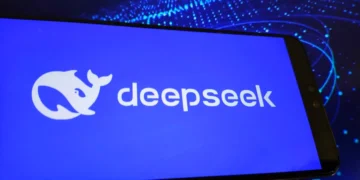
Nomad Go has pivoted from counting people to counting inventory.
The Bellevue, Wash.-based startup raised $1.5 million to help power its new focus on using artificial intelligence to simplify and manage inventory data collection.
Using an iPad or iPhone rather than relying on manual counts by employees using pencil and paper, Nomad Go’s Metashelf combines edge AI computer vision, spatial computing and augmented reality to scan inventory and get instantaneous counts of items.
“They can do it anywhere (shelf, walk-in-freezer, cabinet, warehouse) without having to change anything about their environment (no scanners, antennas, etc.),” Nomad Go co-founder and CEO David Greschler said via email. “Our technology is able to pick up everything it sees, count it (including rows of items), give instant feedback to the user, and then at the end add up everything it has seen and submit the inventory job.”
Greschler said the process makes inventory jobs significantly faster, 99% accurate — and more fun.
“This has enabled companies to do inventory more frequently, which gives them more precise data to better manage their supply chain, reduce waste and out-of-stock, while also providing much cleaner data to implement AI-based decision making, including automated ordering,” he said.
Watch the tech in action in the video below:
Nomad Go is currently focused on the food service market because of the high rate of product turnover, where out-of-stock can have huge implications, and labor costs are significant.
The company is deployed in some of the largest providers in the industry, including quick-serve restaurants, food distributors, and grocery stores.
Founded in 2017 by Greschler and chief product officer Jonah Friedl, Nomad Go was previously using AI to help businesses identify best practices and improve such things as customer throughput, customer satisfaction, speed of service and store-by-store comparisons. During the pandemic in 2020, the company released a product to help physical retailers measure store occupancy and density counts, and also measure mask and social distancing compliance.
Previously venture backed by Cercano Management, Flying Fish, and Fitz Gate, Nomad Go’s latest financing round was a simple agreement for future equity (SAFE) note. Greschler declined to name new investors, whom he said included leaders in tech and food service.
Greschler said the funds will be used to hire enough people in engineering and customer success to meet increased demand for the company’s service. He views the funding as a pre-raise before a much larger funding event planned for later this year.
Nomad Go has raised $5.6 million to date and employs 25 people.















































